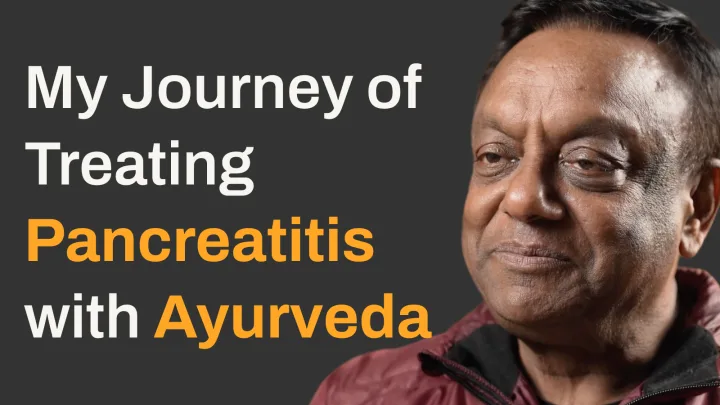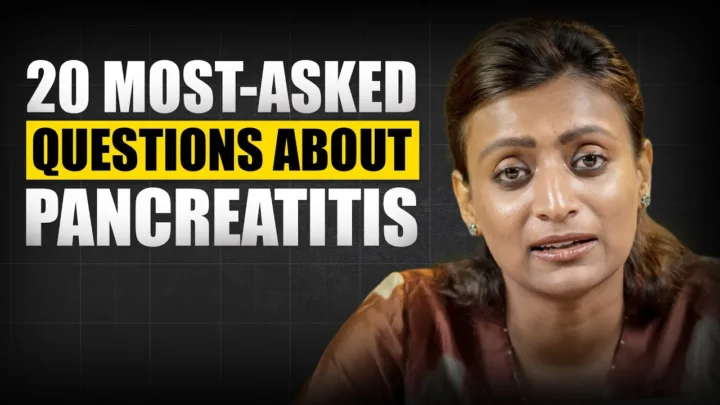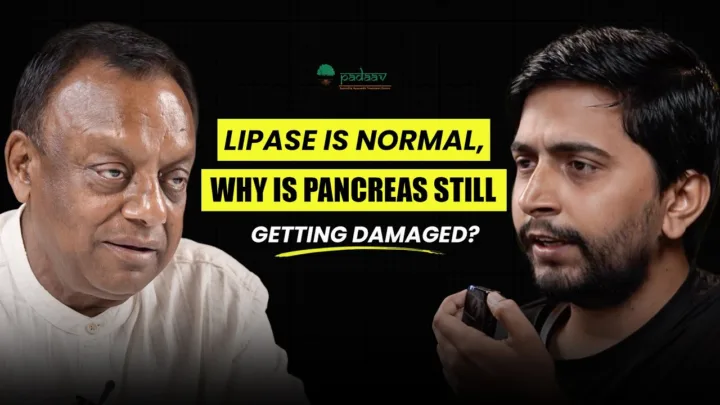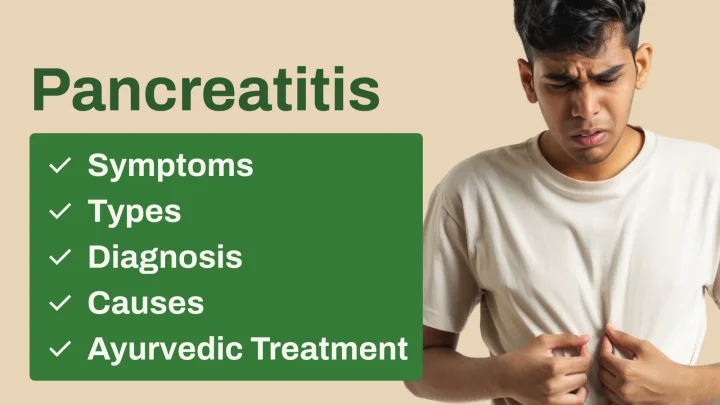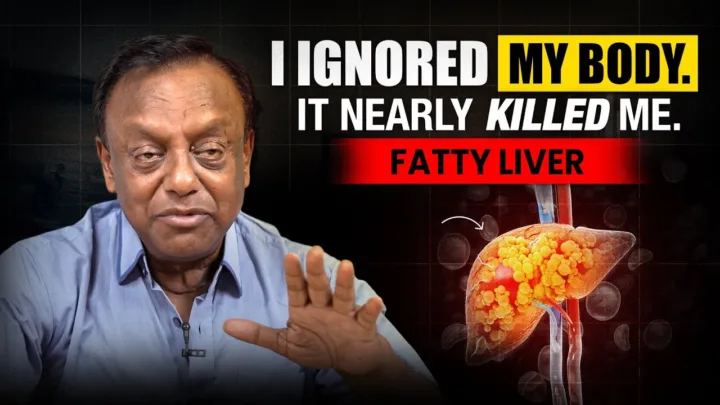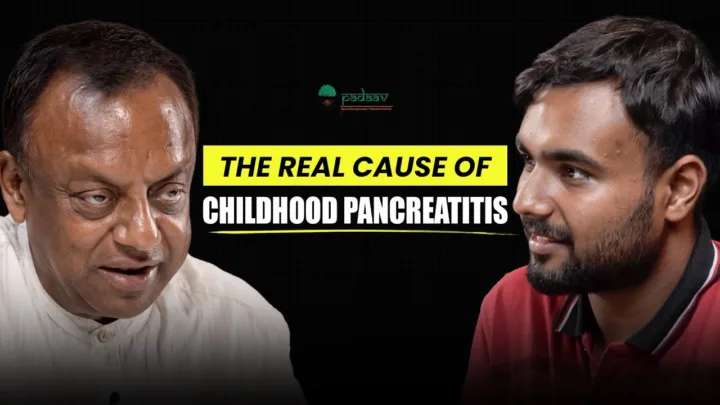In the fast-paced world of today, where late nights and irregular meals are the norm, our understanding of what constitutes a healthy life is being profoundly challenged. This is the story of a Vaidya who, inspired by the scientific methods of the past, embarked on a personal mission to prove that Ayurveda is not just an ancient remedy, but a precise science of prevention for our modern-day ailments.
A Scientific Spark from the Past
The journey began not in a traditional clinic, but in a classroom where a young Vaidya Balendu Prakash was studying genetics. He was captivated by the story of Gregor Mendel, a priest who, in his garden, meticulously documented the traits of pea plants. Mendel’s work proved that life followed scientific rules, not just divine whim. This lesson that truth could be revealed through observation, documentation, and data had a profound impact on him. It taught him that while others saw God’s creation, a scientist saw a pattern. This inspired him to apply the same rigor to his father’s Ayurvedic practice.
A Personal Vow: The Birth of a Documented Practice
In his early days assisting his father in Meerut, Vaidya Prakash noticed a startling pattern. Patients would arrive in a state of advanced illness, often after all hope had been lost with modern medicine. While many of them did not survive, a select few with “incurable” conditions would recover miraculously. This sparked a determination in him to find out why.
He began a meticulous process of documentation, a rare practice in Ayurveda at the time. He started by streamlining his father’s old registers, and then, inspired by the work of a medical secretary he observed on a trip to London, he began creating individual files for each patient. He would note their symptoms, their diagnoses from other doctors, their addresses, and the exact medicines he prescribed. This commitment to data, which began in 1997, became his hallmark, a badge of honor that set him apart as a pioneer in documented Ayurvedic practice. Today, his clinic holds a database of over 2100 pancreatitis patients, a testament to his lifelong dedication.
Pancreatitis: A New-Age Disease of Lifestyle
His meticulous data revealed a disturbing trend: the rising incidence of pancreatitis, especially among the youth. He directly links this to the high-stress, fast-paced lifestyles of today’s students and young professionals. He points to three key Ayurvedic concepts that are being violated: Anashan (long gaps between meals), Atishan (overeating), and Adhyashan (eating frequently without a proper gap).
He explains the scientific mechanism behind this: staying up late increases oxidative stress, which causes dangerous inflammation in the liver and pancreas. The body’s natural defense, melatonin, is only produced during sleep, creating a dangerous imbalance. His published paper in the Journal of Epidemiology was a direct result of these findings, a call to scientists and the public to recognize that pancreatitis is not just caused by alcohol or tobacco, but by the subtle, yet powerful, impact of our lifestyle choices.
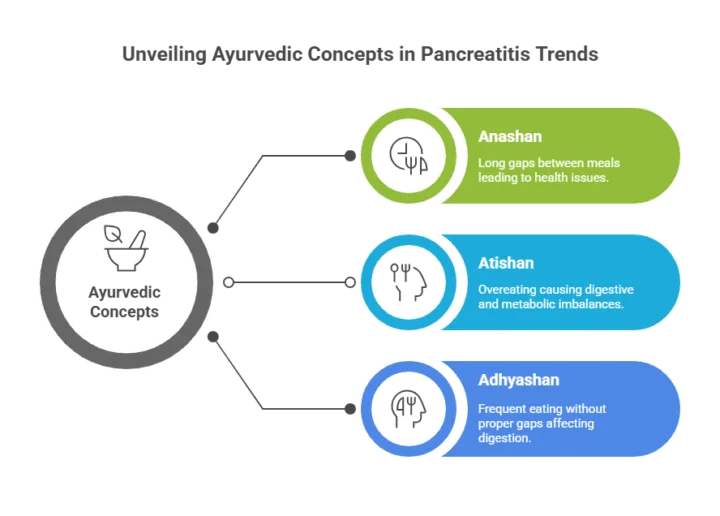
The Overlooked Root Cause: The Sun and Vitamin D3
In his relentless search for root causes, Vaidya Prakash uncovered a shocking statistic: 86% of his patients suffer from a severe deficiency of Vitamin D3. He links this to a modern “fashion” of avoiding the sun, which he first observed in cities like Pune. He poses a direct, thought-provoking question: “Is a fair complexion more important than a healthy body?” This societal trend, he argues, has profound health consequences, as Vitamin D3 is crucial for a strong immune system. Its deficiency makes the body susceptible to not only pancreatitis, but other life-threatening illnesses, including cancer.
A Legacy of Prevention, Not Just Cure
Vaidya Prakash’s mission is clear: to prevent diseases from occurring in the first place. He uses a powerful analogy: “Treating terrorists is not a cure for terrorism; preventing people from becoming terrorists is the real cure.” Similarly, for pancreatitis, the goal is not to perform a pancreatectomy but to prevent the disease from ever occurring. He argues that by reducing the burden of pancreatitis through lifestyle and dietary changes, we can also significantly reduce the risk of pancreatic cancer.
This is the central message of his life’s work: a life guided by the principles of Ayurveda proper diet, timely sleep, and essential nutrients is the ultimate shield against disease. His is a legacy of science and compassion, a powerful testament that when we align our lives with the rhythms of nature, we are not just treating an illness, but creating a life of enduring health.

